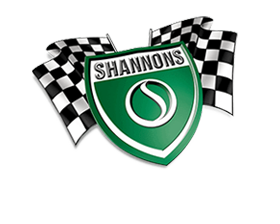1989 Riley MPH Replica Open Sports
Sold: $30,000
Specifications
| Engine | In-line four-cylinder, 1993cc |
|---|---|
| Gearbox | 5-speed manual |
| Body Work | Roadster |
| Colour | Green |
| Interior | Red |
| Trim | Leather |
| Wheels | Wire-spoked |
| Brakes | Discs/Drums |
Description
“As Old as the Industry – As Modern as the Hour” – the catchphrase of Percy Riley’s eponymous company was no small boast, with a history of building automobiles dating back almost to the dawn of motoring and a reputation for making cars of the highest quality. The earliest Riley car was a quadricycle developed in 1899 equipped with a mechanically-operated inlet valve, pre-dating even the advanced Benz motor car in pioneering this technology. Percy Riley was joined by his brothers Victor and Allan, who together founded the Riley Engine Company in Coventry in 1903, initially supplying their father’s firm (and others such as Singer) with proprietory engines before branching into building motor cars in 1905 with the development of a prototype powered by a v-twin motor. The first production Riley, the 17/30, was shown at the 1913 London Motor Show and the company expanded rapidly, diversifying into aero engines during World War One. The popular Nine sports model of 1926 combined excellent performance and build quality in a relatively inexpensive 1100cc car and sold well, while Riley exponents like Freddie Dixon enjoyed major success on the track through the 1930s, with Dixon himself one of the first to recognise the potential of the engines and chassis and the builder of a great many specials. Developments like the six-cylinder MPH and Sprite models saw Riley competing at all levels of motor sport, from grass roots club events to international races like Le Mans, where the cars from Coventry finished second, third, fifth and six in the 1934 edition of the famous 24-Hour race, taking out the Rudge-Whitworth Cup and the Team Prize in the process. Often cited as one of the most attractive sports cars of the 1930s, Riley’s MPH was also produced in small numbers for well-heeled customers (fewer then twenty are thought to have been made) using a variety of different engines, including the 12/6 1458cc, 14/6 1633cc and 15/6 1726cc sixes. With few genuine survivors remaining and values skyrocketing (the last to sell at auction made in excess of $1.2 million), owning a genuine MPH is beyond the reach of most but an affordable alternative does exist in the form of the attractive Vista MPH replica built by the Asquith Brothers, following, where possible, the original works specification, outline and layout.
























